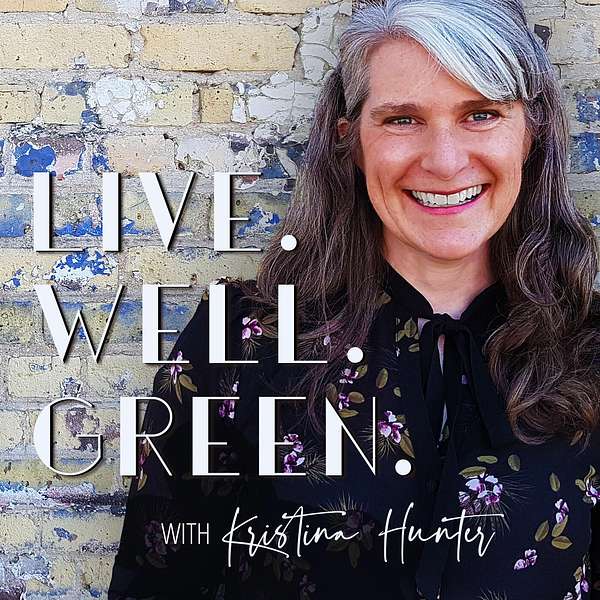
Live. Well. Green.
Live. Well. Green.
Episode 12: Why Cooking Dinner is An Act of Sustainability
Have you ever thought about how your cooking practices impact the environment? I bet not many of you have considered this, but in today’s episode, I will show you how cooking your dinner at home is, in fact, an act of sustainability. There is no doubt that eating at a restaurant or getting takeout is great, but unfortunately, there are several environmental issues associated with those institutions, including the carbon emissions of picking up and delivering these meals and the damage caused by the packaging they come in, which often consists of styrofoam or plastic. The heavy burden that the fast-food industry places on agriculture also has dire implications for animal welfare and contributes to the unmanageable volumes of waste that farming these animals produces. Conversely, there are many benefits to cooking at home, such as reducing carbon emissions and waste; inspiring people to eat healthier; and allowing us to connect with our bodies, the people around us, the source of the food we consume, and the earth. While there is a place for environmentally conscious restaurants, it is important to know how you can live more sustainably by cooking from home. Let’s explore!
Key Points From This Episode:
• Choose restaurants that serve small portions and source local and sustainable foods.
• The problem with big portion sizes, from our expanding waistlines to large-scale wastage.
• Styrofoam and plastic: the containers that restaurants often store leftovers in.
• How fast-food packaging can disrupt our endocrines and aggravate the landfill dilemma.
• How the fast-food industry affects animal welfare and the production of greenhouse gases.
• The problems with the mass production of animals and the waste associated.
• Considering the carbon emissions that result from picking up food or getting it delivered.
• Cooking at home allows us to slow down, come together, and savor what we eat.
• How sharing food is a way of showing that we love and care for someone else.
• Taking the opportunity to source locally, choose seasonable produce, and harvest from your own garden.
• Stack up on nutrients and cut costs by choosing your own food over takeout.
• Save time and energy and reduce waste by keeping your leftovers for the next meal.
Quotables:
“In a recent Canadian study, it showed that 58% of all of the food produced in Canada is either lost or wasted somewhere along the way.” — Kristina Hunter [0:03:01]
“I’m not saying restaurants are bad at all, but certainly there are a lot of environmental issues that we need to be considerate of in regards to food waste, the packaging with takeout and delivery containers, and the carbon emissions of those delivery trips.” — Kristina Hunter [0:19:56]
Links Mentioned in Today’s Episode:
Virginia Woolf
PLEASE NOTE: This episode was recorded before the COVID-19 pandemic appeared in my province in Canada, so I do make reference to being at a restaurant for a meal with friends, the night before the recording. Rest assured that this was not during the physical distancing period, even though this episode is going to air during a time when we are required to remain at home and be physically distanced from others and restaurants are closed. Be well, and follow the advice of your local health authority.